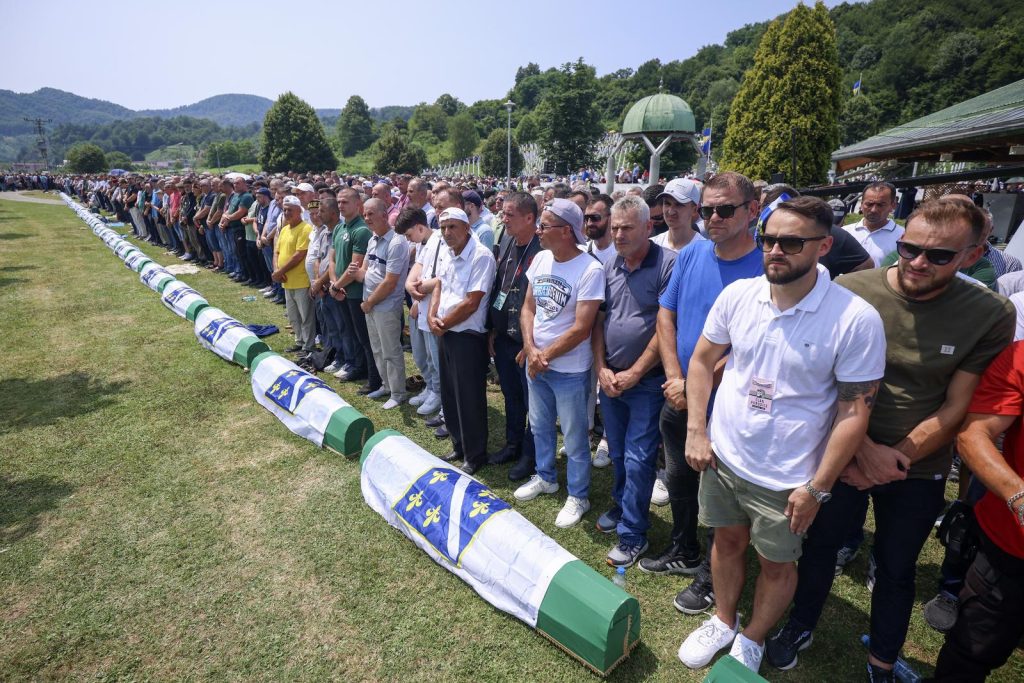July the 14th, 2023 – This week in Croatian politics, the Srebrenica massacre is remembered, we’ve had ongoing issues owing to the recently revealed gas affair, and AI has shown us what Croatian political figures would look like if they lived on the streets.
The HEP/gas affair continues…
If you followed events last week, you’ll know that HDZ has been embroiled in yet another scandal. This time involving HEP and gas prices. It’s more or less all anyone in Croatian politics has been talking about for last week, and you can read a lowdown of events here.
Accusations and questions
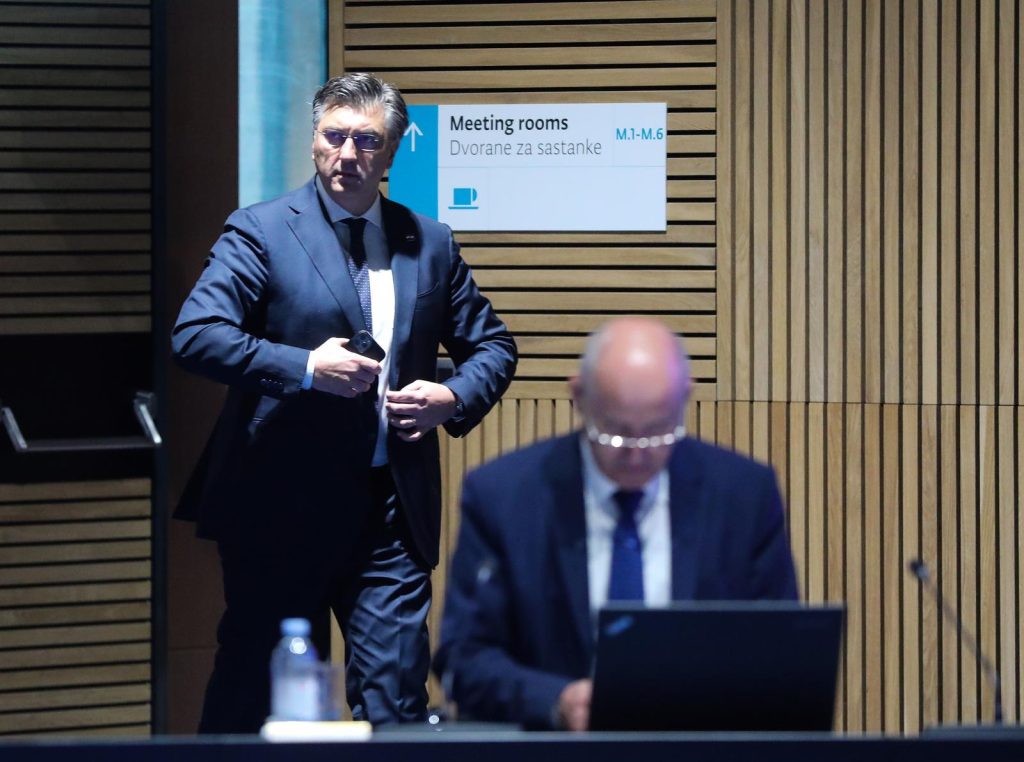
This week, more accusations have flown around in the world of Croatian politics, and Pedja Grbin has referred to Plenkovic as a “control freak” who definitely “knew what was going on” because well… he’s a control freak, apparently. He has also openly accused both Plenkovic and Economy Minister Davor Filipovic of lying about their knowledge of the scandal. The coalition has continued falling out about the unfolding affair and dismissals have been on the table, but Milorad Pupovac has randomly stated that he trusts and believes Plenkovic’s statements on the matter. Alright, then.
Nacional: Plenkovic is lying, HEP’s boss warned him for months about losses

As Nacional claims, the head of HEP, Frane Barbaric, was informing the pair in detail about the dramatic development of the problem, the scale of which, due to the sale of stored gas at low prices, could reach 200 million euros in losses for HEP. It seems these warnings fell on deaf ears and Barbaric’s actions were in vain. It has also been stated that in a letter dated February the 13th, Barbaric asked Plenkovic and Filipovic to urgently prevent losses for HEP.
Plenkovic continues to claim that he knew nothing
Since the affair broke out, Plenkovic has been firm in his claims that he knew nothing. “It’s very worrisome that there have been redundancies that we weren’t warned about clearly and in due time. Now we’ll have time to look at everything in peace. We’ll tell you everything when we are informed ourselves”, repeated Plenkovic persistently over the past week or so.
The first letter, according to a report by Nacional, was sent to Davor Filipovic on January the 27th, 2023, with the title “Implemented Regulations and Decisions on the Gas Market of the Republic of Croatia”. It warns that HEP then had gas surpluses in the amount of 660,759 GWh.
A series of letters and warnings were allegedly sent
“The amount of gas taken from INA is significantly greater than the amount of gas delivered to end customers. From the financial side of things, this requires the engagement of significant funds, which is reflected in inflows and outflows,” the letter states, adding that this represents a blow to HEP’s operations. In the letter, Barbaric also wrote that on February the 9th, obligations of 30.08 million euros excluding VAT were going to be due for the delivered gas.
There was no answer, claims Nacional, which is why Barbaric sent out emergency calls. On February the 13th, HEP sent a new letter to Filipovic and the Prime Minister with a table with the precise quantities of gas delivered to HEP by INA according to the Decree and Government Decision and the quantities delivered to customers by HEP according to the same Decree and Decision from October the 1st, 2022 until January the 31st, 2023. He again requested funds to finance the purchase of gas according to the Regulation and Decision “so as not to disrupt the operations of HEP”.
Nacional claims that Filipovic was warned about the problem at the meeting of the government’s crisis team, which he himself actually chaired. The meeting was held on March the 29th, 2023, and HEP warned those present once again about the creation of gas surpluses. The meeting was attended by representatives of HERA, HROTE, HEP, INA, Plinacro and large gas traders from PPD, as well as numerous other companies from GPZ.
Nacional writes that Barbaric showed all these letters to Prime Minister Plenkovic at an emergency session last week.
Economy Ministry: HEP Didn’t send any such letter
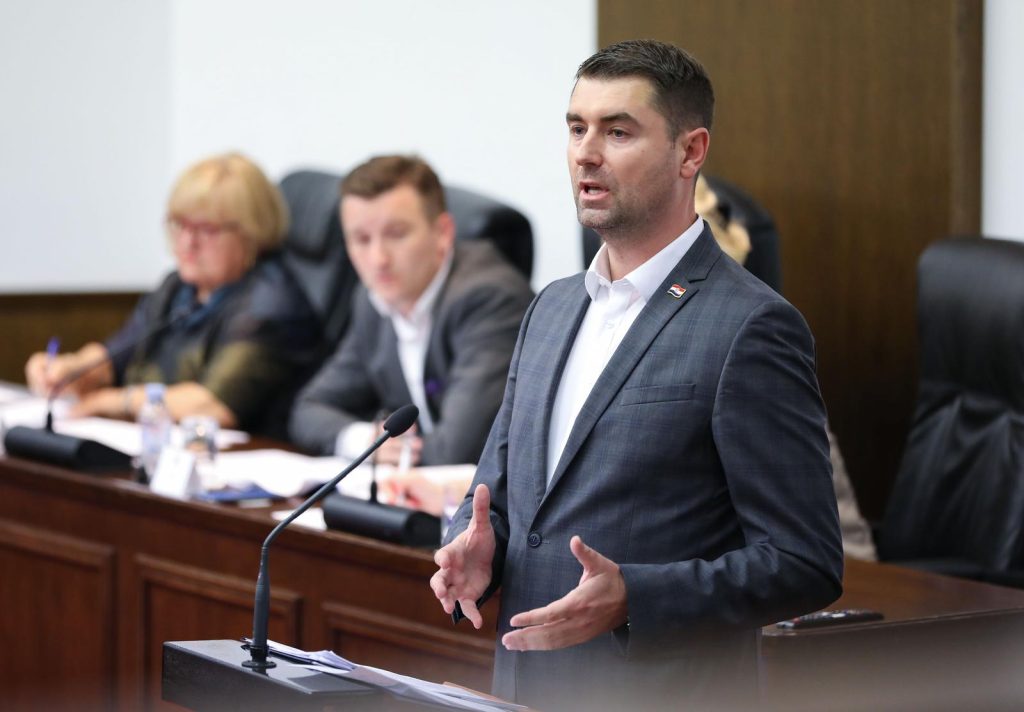
On July the 3rd, 2023, the Ministry of Economy and Sustainable Development replied to Jutarnji list’s questions, saying that it had not received a letter from HEP regarding gas surpluses.
“As of today, HEP hasn’t submitted a letter informing the Ministry of Economy and Sustainable Development about the problems with the inability to store the gas that was taken over from INA. Likewise, if there was a decrease in demand and/or the departure of customers who had protection last year with other suppliers, the Ministry of Economy and Sustainable Development doesn’t have such information. The regulation doesn’t prohibit the storage of gas for the needs of protected customers outside the Republic of Croatia, and there were also no inquiries in this regard,” they answered bluntly.
The documents published by Nacional disprove the above statement entirely.
In somewhat lighter news, AI has been so kind as to show us what those in Croatian politics would look like if they were homeless

Yes, you read that correctly. Artificial Intelligence has taken the world by storm, with some loving it and others absolutely loathing it. Regardless of your stance on these admittedly frightening new technological advances, it can provide some laughs alongside a dose of existential doom. AI recently revealed what various individuals from the world of Croatian politics would look like if they were homeless.
Among the characters are Andrej Plenkovic (prime minister), Kolinda Grabar-Kitarovic (former president), Vili Beros (health minister), Zoran Milanovic (current president), Zdravko Maric (former finance minister) and more. Index Magazine interviewed the brain behind this rather bizarre but definitely amusing idea, Filip Filkovic Philatz who decided to create homeless Croatian politicians using the Midjourney platform. Naturally, these images of some “favourites” in Croatian politics looking less than dapper went viral very quickly.
Philatz revealed that the message behind this idea was a simple one. “By presenting familiar figures in an unfamiliar context, it encourages conversation about the fluidity of identity, socio-economic status and the human condition. It’s a reflection of our shared vulnerability and a way to challenge our preconceived notions about individuals and society. And it’s just plain fun,” he described.
AI can be used to do good, or bad
He added that he sees AI as a powerful tool and that, like any technology, it can be used for good or bad, depending on the intentions of those using it. “I believe in harnessing artificial intelligence for positive applications, pushing boundaries, encouraging creativity and helping ourselves gain new insights into our world,” he concluded.
You can follow Filip’s various creations here.
The horrific Srebrenica massacre is remembered by Croatia
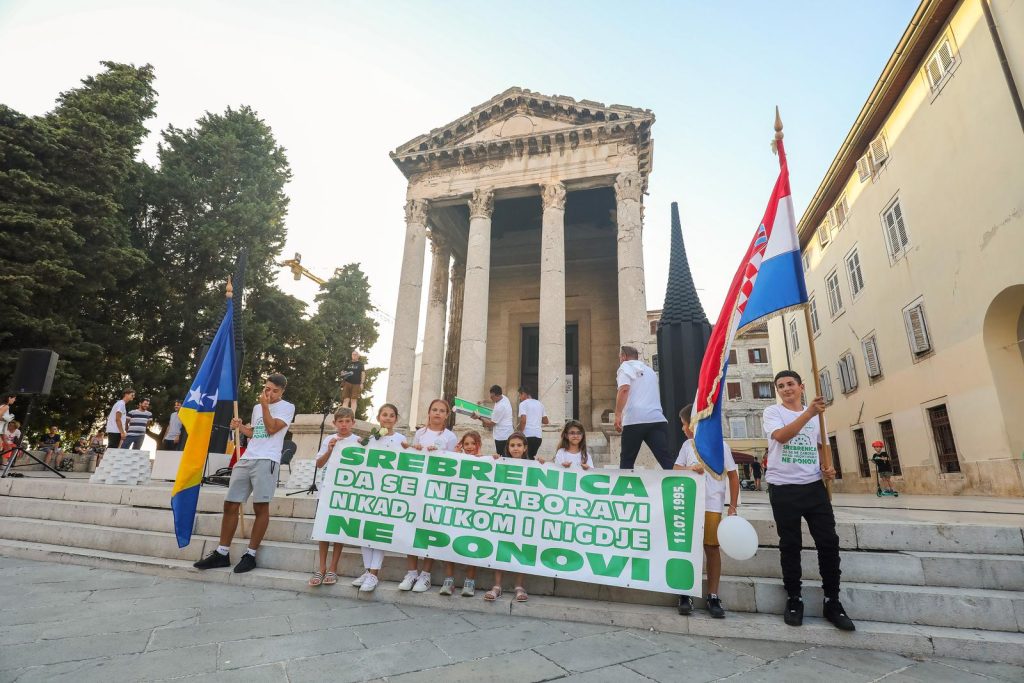
Back in July 1995, the Srebrenica massacre took place in and around the town of Srebrenica, Bosnia and Herzegovina. More than 8,000 Bosniak Muslim men and boys were brutally murdered by units of the Bosnian Serb Army of Republika Srpska, under the orders of Ratko Mladic.
The Serbian offensive against Srebrenica occurred on July the 6th, 1995. Ratko Mladic warned two very prominent Serbian politicians from Bosnia and Herzegovina, Radovan Karadzic and Momcilo Krajisnik, that the desired outcome and the plans as they then were wouldn’t come to be without committing genocide against the Bosniaks. Karadzic and Kraijisnik were both indicted for genocide, with Mladic facing the same fate only in 2017 at the hands of a UN tribunal.
In addition to the murder of over 8,000 Muslim men and boys, rape and sexual abuse, as well as other forms of torture, were carried out against the female population. Witnesses report streets “littered with dead bodies”, people being “buried alive” and Serbian forces “abusing and murdering people at will”. The above claims were made by Frenchman Jean Rene-Ruez, who gave evidence. He also claimed people “committed suicide to avoid torture such as their ears being removed”, and that “adults were forced to watch Serbian forces murder local children.”
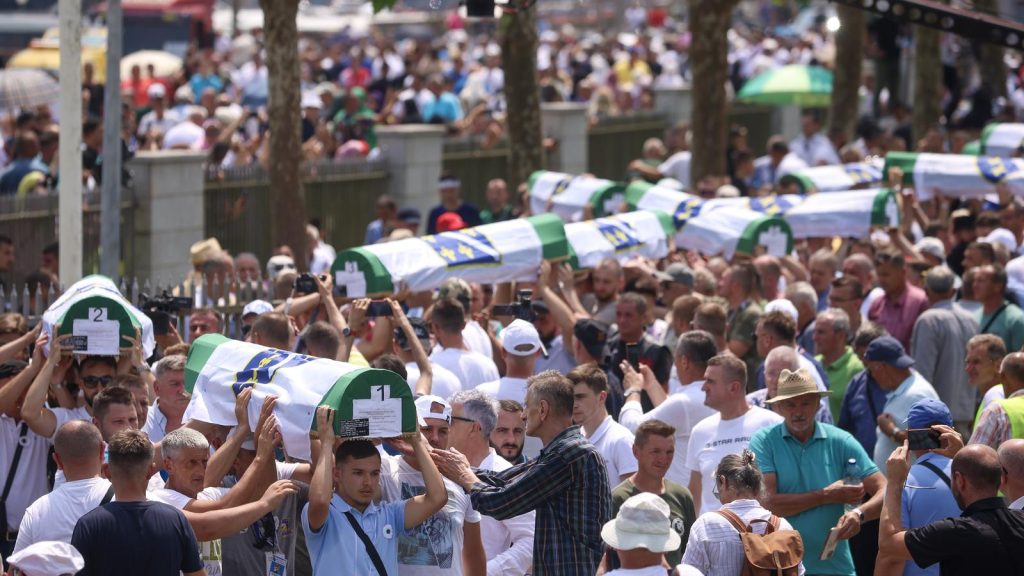
The massacre was subsequently declared an act of genocide by the International Criminal Tribunal for the former Yugoslavia (a body of the United Nations/UN). The remains of the missing are still being found today.

